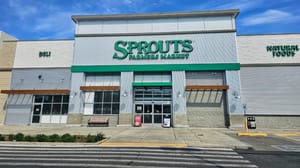Store Brands 2012: Drug Interactions
Pharmacy chains consolidate and refine lines to build loyalty and front-end profits
January 23, 2012
Walgreens is on track to double its private-label sales to $8 billion within the next five to seven years.
“It’s at the top of our list to grow private brands,” Laura Sturdevant, Walgreens’ director of product development, private brands, said at the annual Private Label Manufacturers Association’s trade show, held in Chicago in November.
(This article is part of SN's "Store Brands 2012: State of the Industry Report," which examines trends in private-label products and marketing. See the Related Articles list below for more stories in this report. Read Carol Angrisani's Store Brands 2012 introduction here.)
To do so, the drug chain is in the midst of a major private-label consolidation that will pare the 75-brand program down to just a few core lines.
Key to the effort was the recent launch of Nice, a 300-item line of grocery and household products.
At the same time, the Deerfield, Ill., chain is phasing out many second- and third-tier private brands. For instance, in household products, the company will reduce some 23 brands to about one or two. And 22 consumer packaged brands will be cut to about six or seven.
“W” is among the brands being dropped because consumer research showed that shoppers didn’t relate to the brand.
It opted to keep Patriot candles due to strong brand recognition, but update the packaging.
“Consumers recognize the brand as being from Walgreens,” she said.
Pet Shoppe, a 60-item line of pet food and accessories, will also stay, though it underwent a major packaging upgrade to give it a national-brand feel.
Along with Nice, other new brands have emerged. One is a no-name store brand that will launch soon.
The brand will be defined by its imagery: “fresh and clean” graphics and a smiling sun, known internally as “Sunny Smile,” according to Sturdevant.
“We purposely didn’t put a name on it,” she said.
Priced at Walgreens’ opening price point, the brand will have functional quality and the lowest cost.
“Sunny Smile” will comprise about 50 stockkeeping units of household products like paper towels, and select consumables like cookies.
Building private label is a smart move considering private brands in all outlets accounted for $88 billion in sales in 2010, double the amount of 2000, she said.
“That’s pretty phenomenal, especially in this economy,” she said.
What’s more, one of the fastest-growing segments of private-brand buyers is consumers who make over $100,000 a year.
“It’s no longer the cheap option,” she said. “People feel it’s smart to buy private brands.”
That’s why CVS and Rite Aid are also revamping existing lines and creating new ones.
At CVS/pharmacy, Woonsocket, R.I., store brands could account for a whopping 20% of front-end sales within the next few years. The drug chain is on track to achieve that goal, with store brands currently comprising 17.5% of front-end sales.
“Drug stores are doing good work in private label, from packaging to the quality of the product,” noted Todd Hale, Nielsen’s senior vice president of consumer and shopper insights.
Drug chains have shown they don’t want their private labels to be merely an alternative to national brands. Rather, they want their brands to stand on their own.
“They’re creating their own unique look,” said Hale. “They’re not just copying what the brands have done.”
Five to 10 years ago, private label in drug stores consisted mostly of over-the-counter medicines that were national-brand-equivalents, said Jim Wisner, president of Wisner Marketing Group, Libertyville, Ill.
Private Label Becomes 'Branding Component'
That’s certainly no longer the case. Take Walgreens, whose entire approach to private label has changed.
“It’s now using private label as a branding component of the entire store,” he said.
Walgreen’s acquisition of Duane Reade has helped in the effort because it enabled Walgreen’s to bring in Duane Reade’s popular “DR Delish” line of premium snacks and beverages to its Walgreens stores. (Walgreens renamed the brand “Good & Delish” so that it would be marketable in Walgreens banner stores.)
Walgreens’ private-brand initiative comes at a time when drug stores are seeking out new ways to differentiate their stores. This has resulted in expanded shelf stable grocery, refrigerated and frozens sections, as well as increased availability of section and sandwiches and other grab-and-go items.
“They’ve begun to operate almost like a convenience store,” Wisner said.
This is especially true in urban areas, where drug stores serve almost as a secondary food outlet, said Wisner.
“Drug stores are becoming a place where you can get a sandwich as easily as you can from a fast-food chain,” Wisner noted.
Private label fits into that strategy because it gives drug stores another way to build brand loyalty. By offering proprietary products in multiple categories, they can give shoppers a reason to choose their stores rather than another outlet.
 Take beauty products. CVS recently introduced Nuance Salma Hayek (right), a line of skincare, cosmetics, haircare and body products. The brand is a partnership between CVS and Hayek, a film actress/director/producer.
Take beauty products. CVS recently introduced Nuance Salma Hayek (right), a line of skincare, cosmetics, haircare and body products. The brand is a partnership between CVS and Hayek, a film actress/director/producer.
“Brands like that create word-of-mouth buzz,” Wisner said.
CVS has other new offerings. Last year, the chain launched Just the Basics, a 100-item line of household, beauty, baby, personal care and other basics.
Rite Aid Corp., Camp Hill, Pa., is also on the private-label move. The chain recently announced that its private-brand penetration increased to 16.8% from 15.6% last year.
 Over the past year, Rite Aid has introduced several new lines, including Renewal personal care and beauty line, Pantry foods and household goods (left), Tugaboos baby line and Simplify, a value-priced brand.
Over the past year, Rite Aid has introduced several new lines, including Renewal personal care and beauty line, Pantry foods and household goods (left), Tugaboos baby line and Simplify, a value-priced brand.
“The three chains are competing for primacy,” Jay Forbes, a consultant and former publisher of Drug Store News, said in November at the PLMA annual trade show.
Walgreens is particularly aggressive, Forbes said.
“There’s been a lot of experimentation at Walgreens, especially since the acquisition of Duane Reade,” Forbes said. “It has an aggressive movement toward private label.”
Indeed, Walgreens has significantly invested in private label. What was a mere five-person private-brands department two years ago is now a 40-person team aimed at creating a best-in-class, private-brand program.
Key to staffing was the hiring two years ago of former Kraft Foods’ executive Maurice Alkemade as divisional vice president/general merchandise manager for private brands, as well as Sturdevant, whose resume includes private-brand development at Aldi and Topco.
The mission of the department is clear: create private labels with a powerful brand identity.
“We want to build brands, not labels, that’s first and foremost,” said Sturdevant.
 Walgreens also sells its own beers, including Big Flats 1901, a premium lager; and Playa de la Cruz (right), a Latin import.
Walgreens also sells its own beers, including Big Flats 1901, a premium lager; and Playa de la Cruz (right), a Latin import.
Walgreens is investing in core brands with consumer research and marketing. Along with national advertising, it�’s also built up in-store marketing. It’s using in-store media to explain the private-brand consolidation. Shelf signs explain to shoppers that some of the products they love will still be available, only under a different brand.
“We don’t want to lose customers who are already buying our private label,” she said.
Its goal is to create a consistent look and feel of its products so that when customers see them in their medicine cabinets or pantries, they immediately identify them with Walgreens, Sturdevant said.
“It’s about profits,” she said. “Private brands are a profit player, and we hope to bring a profitable solution to Walgreens and to our shareholders.”
Drug Therapy
All three of the drug chains have implemented major private-label upgrades.
Among the efforts:
• Walgreens is on track to double its private-label sales to $8 billion within the next five to seven years.
To do so, the drug chain is in the midst of a major private-label consolidation that will pare the 75-brand program down to just a few core lines. Key to the effort was the recent launch of Nice, a 300-item line of grocery and household products.
At the same time, the Deerfield, Ill., chain is phasing out many second- and third-tier private brands.
• CVS: Store-brand sales could account for a whopping 20% of front-end sales at CVS within the next few years. The drug store chain is on track to achieve that goal, with store brands currently comprising 17.5% of front-end sales.
CVS recently introduced Nuance Salma Hayek, a line of skincare, cosmetics, haircare and body products. The brand is a partnership between CVS and Hayek, a film actress/director/producer.
CVS has other new offerings. Last year, the chain launched Just the Basics, a 100-item line of household, beauty, baby, personal care and other basics.
• Rite Aid Corp. recently announced that its private-brand penetration increased to 16.8% from 15.6% last year.
Over the past year, Rite Aid has introduced several new lines, including Renewal personal care and beauty line, Pantry foods and household goods, Tugaboos baby line and Simplify, a value-priced brand.
About the Author
You May Also Like





.png?width=300&auto=webp&quality=80&disable=upscale)
